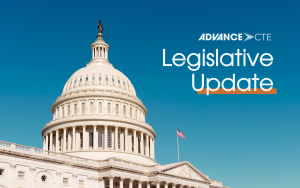Federal Government Still Shut Down
The formal start of the 2026 federal fiscal year (FY26) was last Wednesday, October 1, but Congress has yet to pass needed appropriations legislation beyond this date. As previously shared, lawmakers in the House narrowly passed a short-term extension of federal funding, known as a continuing resolution (CR), through late November. However, this measure has continued to fail to garner the support necessary to clear the Senate’s filibuster. At issue are the inclusion of healthcare tax credits, which are set to expire at the end of the calendar year. Democrats have continued to insist on the inclusion of these tax credits in exchange for their support, which is needed to pass appropriations legislation via the Senate.
This week, the Senate held several failed votes on this measure as well as a Democratic-backed counterproposal, which includes these tax credits and would fund federal operations through the end of October. Congressional Republicans and the Trump administration have continued to reject these proposals, arguing that negotiations regarding these tax credits can resume once the federal government is funded.
As previously reported, the U.S. Departments of Education (ED) and Labor (DOL) have released contingency plans detailing how each agency will function during the shutdown, and DOL has also issued updated guidance on the availability of funds during this period.
Advance CTE will continue to monitor the progress of these appropriations discussions and will continue to communicate the potential impact on education and workforce programs to the wider CTE community.
Senate HELP Committee Holds Hearing on Artificial Intelligence Potential
This week, the Senate Committee on Health, Education, Pensions & Labor (HELP) held a hearing titled “AI’s Potential to Support Patients, Workers, Children, and Families,” examining the impacts of Artificial Intelligence (AI) across health, education, and the workforce. HELP Chair Bill Cassidy (R-LA) highlighted AI’s potential to personalize learning and drive innovation, but cautioned the risk to privacy and worker security. Ranking Member Sen. Bernie Sanders (I-VT) warned that AI could deepen inequality and displace millions of workers without stronger protections. Witnesses urged Congress to invest in workforce development, ensuring workers have a voice in AI technology integration, and to discuss AI’s role in enhancing teaching and reshaping jobs. Click here to access a recording of the HELP hearing on AI.
Senate Confirms Additional Trump Administration Nominees
Last Friday, the Senate confirmed several nominees to serve in the U.S. Departments of Education (ED) and Labor (DOL) as part of a larger en bloc package of 108 appointments across the federal government. Confirmations in ED included Kimberly Richey from Texas to lead the Office for Civil Rights (OCR), David Barker from Iowa as Assistant Secretary of Postsecondary Education, and Kirsten Baesler from North Dakota as the Assistant Secretary of Elementary and Secondary Education. Confirmations in DOL included Julie Hocker of Virginia and David Keeling of Kentucky, to be Assistant Secretaries of Labor, Jonathan Berry of Maryland, to be the Solicitor for DOL, and David Brian Castillo of Washington, to be Chief Financial Officer. Read the complete list of these nominations here.
This week, the Senate Health, Education, Labor & Pensions (HELP) Committee held a hearing to consider the nominations of four DOL political appointees. As a reminder, Dr. Kevin O’Farrell was nominated to serve as the Assistant Secretary for Career and Technical Education at ED earlier this year, and former Florida CTE state director Henry Mack was nominated to lead DOL’s Employment and Training Administration. As of yet, neither has been formally confirmed by the Senate.
Advance CTE will continue to update the field as the Trump administration takes shape and appointees are confirmed to key governmental posts.


